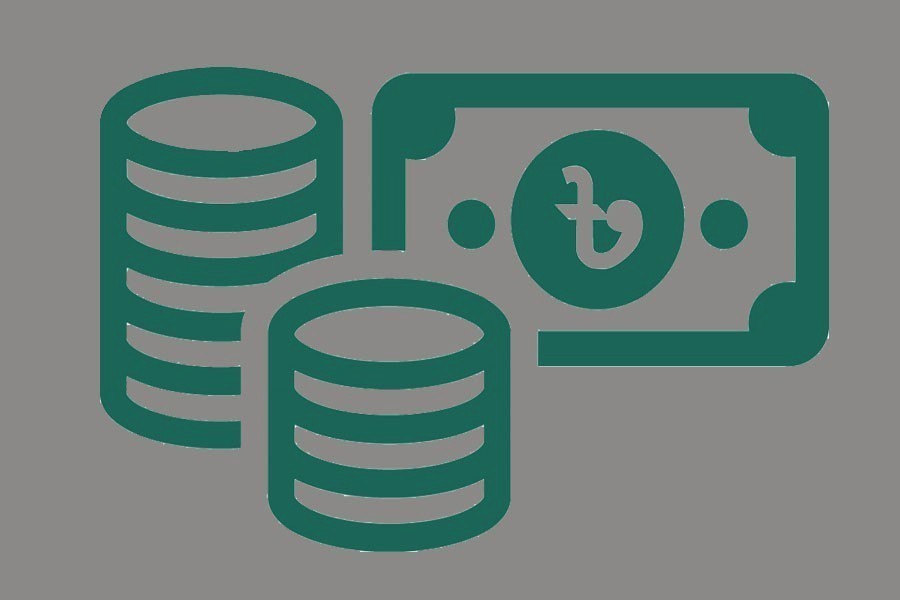
Published :
Updated :

Bangladesh's private corporate organisations may feel economic pressures from a blowback as the US Fed prepares to squeeze its spendthrift pandemic supports in a corrective action likely to cause 'taper tantrum' market disruptions.
Some leading economists of Bangladesh sounded a note of caution that such tapering may spark a surge in global borrowing costs of the dollar like in market-temper tantrums.
They think this is right time the authorities created awareness in the financial sector to avoid any big trouble.
Dr Ahsan H. Mansur, executive director at the Policy Research Institute of Bangladesh (PRI), says: "The corporate borrowing may be affected adversely as a result of the expected tapering."
Lenders may not roll over the funds to the corporate houses if the taper tantrum surfaced in major global central banks.
The phrase taper tantrum describes the 2013 surge in US Treasury yields that resulted from the Federal Reserve's (Fed) announcement of future tapering of its policy of quantitative easing.
The Fed announced that it will be reducing the pace of its purchases of Treasury bonds, meant for reducing the amount of money it was feeding into the economy. The ensuing rise in bond yields in reaction to the announcement was referred to as a taper tantrum in financial media.
Meanwhile, Bangladesh private-sector borrowing from external sources spiked in recent times as it is much cheaper than the funds on local money market. The outstanding at the end of March last was $16.2 billion, up by $1.4 billion than in December 2020.
They borrow through financial products, namely, buyers' credit, deferred payment and back-to-back letter of credits.
The PRI executive director, Dr Mansur, said capital market may be impacted as well as many foreign investors may avoid risky securities in the event of costly finances.
But, he said, the remittance inflow may face a drastic fall, which already declined nearly 28 per cent in July last.
"To my mind, overall remittance inflow will drop."
He said remittance has many breakdowns. Some are genuine Bangladeshi expatriate repatriation hard-earned currencies. However, a portion contains some of foreign currencies sent to Bangladesh for higher returns.
The main impact will be felt at a time when travelling will pick up.
"We all need foreign currency for travelling purposes and we collect it from the 'kerb' market," said the former IMF executive.
Local corporate houses who borrow from the overseas sources say that the borrowing will be expensive following tapering.
Aameir Alihussain, managing director at the country's biggest rod-producing company-BSRM --- said: "Tapering will make foreign borrowing costly."
This will happen slowly, he said, adding: "If it becomes higher than local part, then we will borrow from local sources."
Dr Zahid Hussain, a former lead economist at the World Bank, told the FE that this is yet to start. The Fed is planning it in the wake of rising inflation on the US market, which now hovers around 4.0 per cent.
He, however, said the government may avoid its risk as the central bank of Bangladesh has adequate foreign-exchange reserves.
"The government has already received 1.45 billion dollars distributed by the IMF as per Bangladesh's voting shares at one of the Bretton Woods Institutions."
The International Monetary Fund (IMF) created a fund worth $650 billion in SDR on August 23 which gives the member-states the right to access the dollar at essentially zero cost without an IMF programme.
Dr Hussain noted that the government has very limited presence on the international market. There is an IFC 'Bangla' bond listed with the London Stock Exchange for local food conglomerate PRAN.
He thinks even the central bank may gain some interests as the Fed interest will be up.
Dr M. Masrur Reaz, chairman at the Policy Exchange of Bangladesh, a newly formed think tank in Bangladesh, said: "The tapering will take place shortly as the US economy is now rebounding."
Dr Reaz said this will affect more or less some sectors, including the capital market.
He thinks this will take place for a period of one year or more when the US Fed will buy back its bond and other securities.
In an interview with the Financial Times, Gita Gopinath of the IMF noted the Fed prepares to dial back its pandemic supports, highlighting the economic pressures on low-and middle-income countries which have suffered disproportionately from the coronavirus crisis.
"She said [emerging markets] are facing much harder headwinds."
Emerging markets cannot 'afford' a repeat of the 2013 'taper tantrum' market disruption that occurred when the US Federal Reserve signalled a sooner-than-expected withdrawal of stimulus, sparking a surge in global borrowing costs, the IMF's chief economist warned.
jasimharoon@yahoo.com


 For all latest news, follow The Financial Express Google News channel.
For all latest news, follow The Financial Express Google News channel.